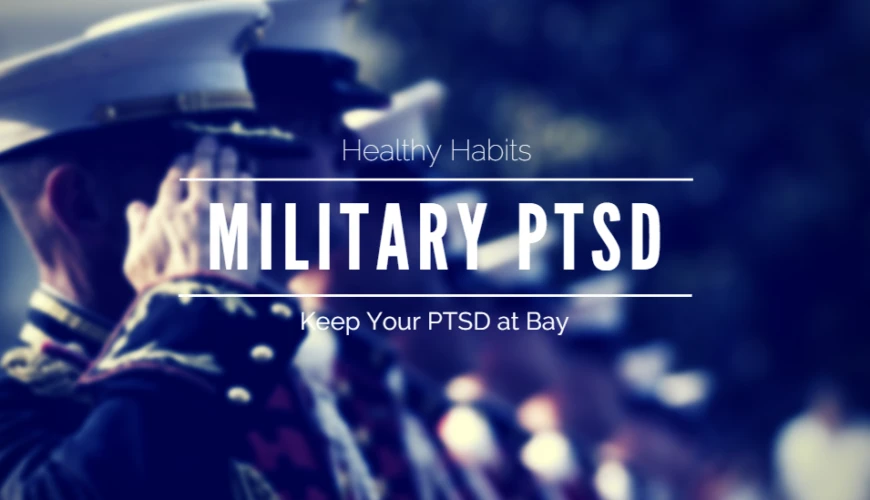Post-traumatic stress disorder (PTSD) is a disorder that occurs in some individuals who have experienced a shocking, scary, or dangerous event. Most will recover naturally from experiencing a range of reactions after trauma, but those who continue to experience problems may be diagnosed with PTSD.
Far too many veterans returning from war are struggling with military PTSD and experiencing the painful and debilitating symptoms that come with it. According to Medline Plus, 31% of Vietnam veterans, 11% of Afghanistan veterans and 20% of Iraqi veterans returned from combat with PTSD. Many of them are also undiagnosed. So how do these men and women recover and cope with the symptoms they come home with? If you or someone you know are experiencing military PTSD,
- Take Time to Relax – Setting aside time to relax is a great opportunity to focus on your breathing techniques, meditation or simply reading a book. If down time isn’t your thing, volunteer for community service or at a local event.
- Sleep – Getting plenty of sleep a night (7-9 hours is recommended) sets you up for success. A good night’s sleep allows you to wake up more clear minded and mentally stable than depriving yourself of it. Not getting enough sleep results in feeling agitated, irritable and angry – the feelings you want to avoid.
- Exercise – Exercise at least 30 minutes a day or more! Moving around helps release not only endorphins but also common stress and anger symptoms many individuals returning from the military experience.
- Blow off the Steam You’re Experiencing – Invest in a punching bag, a pair of running shoes or a pair of headphones. Pummel that punching bag, sprint as fast as you can or belt out a song to blow off some steam. This will help you ground yourself during a possible flashback.
- Mindful Breathing – Be mindful of your breathing and use it as a technique and a beneficial way to calm yourself in any situation. Research has found that deep breathing or meditation naturally relaxes your body and decreases chances of irritability and stress. Take 10 minutes of each day to get the best results.
- Avoid Alcohol and Drugs – In a time of pain and suffering, it is easy to turn to drugs and alcohol to numb the pain you’re feeling and avoid the intrusive thoughts that may be penetrating your mind. However, drugs and alcohol have a very negative impact on the symptoms of PTSD and in turn, makes the disorder much harder to cope with both long-term and short-term.
If you or a loved one are experience military PTSD, consider volunteering in a clinical research study and contributing to research. Please call us at (501) 553-9987 to discuss your eligibility to participate in a clinical research study that has the potential to improve your quality life and many others with military PTSD.
Resources:
https://medlineplus.gov/magazine/issues/winter09/articles/winter09pg10-14.html
https://www.helpguide.org/articles/ptsd-trauma/ptsd-in-military-veterans.htm

